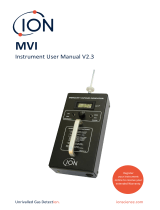
5
Setting Attenuation
The attenuation switch lets you reduce the signal level without altering the frequency response. This can prevent extremely loud
sounds from overloading the microphone.
0dB For "quiet" to "normal" sound levels.
-15dB For use with extremely loud sound sources such as drums, horns, or loud guitar cabinets.
Low-Frequency Response Switch
The low-frequency response switch changes the frequency response of the microphone.
Flat response (bypass)
This setting provides natural sound with no low-frequency reduction. Use the flat setting when recording sources that
extend into the low-frequency range (piano, bass, percussion, etc.).
Low frequency cutoff
This setting provides a reduction in low frequencies to reduce noise or shape the tone. Use this setting to:
- Reduce floor rumble and low-frequency room noise from heating and air conditioning systems
- Decrease the volume of low frequencies that cause instruments to sound dull or muffled
- Shape the tone on sources which do not produce much bass (violin, acoustic guitar, flute, etc.)
- Reduce plosives (the pop that is heard when a vocalist says a word starting with the letter P). If possible, use a pop filter
alone or in combination with the low-frequency reduction setting.
Applications
The following table provides a basic starting point for several instruments. Shure offers additional educational publications on
microphone placement and recording techniques. Visit www.shure.com for more information.
Application Distance from source Tips
Voice 1-3 inches (2-8 cm) Use a pop filter (Shure PS-6) to prevent plosives.
Acoustic guitar 6-12 inches (15-30 cm) Place near the sound hole for a full sound, or near the
12th fret for a balanced, natural sound.
Drums 3-6 feet (1-2 m) Place in front of the drum kit to capture more of the kick
drum, or as an overhead (above the kit, facing down) to
capture more cymbals. Consider using additional Shure
microphones placed on individual drums for more mixing
flexibility and a thicker sound.
Amplifiers 1-6 inches (2-15 cm) Aim towards the center of the speaker for a clear,
aggressive sound, or towards the edge of the speaker for
a mellow sound.
Strings or horns 1-6 feet (30 cm - 2 m) For a single instrument, place the microphone close to
the source. For a horn or string section, arrange players
at an equal distance from the microphone.
Full band Facing towards the
group, centered
between instruments
Use the -15 db attenuation switch if the band is very loud
to prevent distortion.
Tip: Close microphone placement results in a full sound due to the proximity effect. Placing the microphone farther from the
source results in more room ambience.








